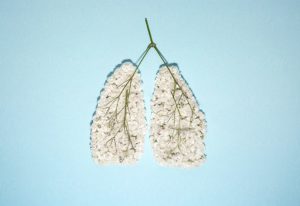3 WAYS TO REBALANCE YOUR BODY
With Eastern Medicine

You come home from a busy day at work only to be greeted by a pounding headache as you walk through the door. What’s your next move? If you’re like many Americans, your instincts might tell you to pop an Advil and get on with your day.
While there’s nothing wrong with that gut instinct, it underlines a key difference in Eastern and Western philosophies when it comes to medicine. In the West, we readily depend on drugs to address the symptoms of our health issues, whereas Eastern medicine emphasizes a wholistic approach to keep the body healthy and happy preventatively.
When it comes to your health, neither approach is right or wrong — you just need to find a balance that works for you.
How to Achieve Balance and Live a Healthy Life
What does achieving a balance look like? That depends. If you’re already on a prescription, you shouldn’t stop taking your medicine. But, you can also make some lifestyle changes in pursuit of a more natural and holistic approach to your health.
Here a few ways you can make some changes and experiment with Eastern medicine to help find balance in your mind, body and spirit.
1. Get Acquainted With Your Organ System
 In the West, we’re taught that our organs have specific functions. For example, our lungs help us breathe and our heart pumps blood. We’re also taught that our organs are dependent on one another.
In the West, we’re taught that our organs have specific functions. For example, our lungs help us breathe and our heart pumps blood. We’re also taught that our organs are dependent on one another.
In the East, the organ system as a whole takes on a much bigger role. To better understand how it works, the organ system is broken down into five main systems:
- The Heart and Small Intestine
- The Liver and Gallbladder
- The Kidney and Bladder
- The Lung and Large intestine
- The Spleen and Stomach
Each system plays its part in helping your qi flow through your body. Take for example the Heart. In Traditional Chinese Medicine (TCM) and in Western medicine, we’re taught that the Heart regulates blood flow.
In addition to its primary function, TCM also teaches that the Heart, and the quality of the blood it regulates, affects how we think and feel, especially when it comes to insomnia. So if someone is full of anxiety, for example, it could be an issue with the Heart rather than say, pressure from work.
With that in mind, a TCM practitioner might suggest a change in diet, acupuncture, or even an herbal tincture to help bring balance to your qi and Heart rather than prescribe you a drug to address your symptoms.
Learning how your organs work together from an Eastern medicine perspective will give you a better idea of how qi flows through your body and how you can restore balance naturally.
2. Learn to Understand Your Body and Its Symptoms
 You start to experience symptoms when there’s an imbalance in your body. Every symptom can be interpreted as a sign that points to an underlying imbalance (or health issue), so learning to identify and address symptoms is key to maintaining balance.
You start to experience symptoms when there’s an imbalance in your body. Every symptom can be interpreted as a sign that points to an underlying imbalance (or health issue), so learning to identify and address symptoms is key to maintaining balance.
From a TCM perspective, finding balance starts with understanding the relationship between yin and yang. TCM teaches that these opposing forces are evident in everyone and everything. With that in mind, an imbalance in your body means an excess of yin or yang, which can cause symptoms ranging from a fever or cold to digestive problems and so on.
Learning to understand what your symptoms are telling you is a bit like root cause analysis: You trace what the symptoms are and then look for behavior in your life that may be the cause.
It could be a bad diet, a lack of exercise, or even something deeper, like interpersonal conflict or — worse — a nasty breakup. Whatever the case may be, finding the root cause is key to restoring balance so you can keep living your best life.
3. Research and Experiment With Chinese Herbal Formulas
 Herbal formulas are a common way to address health issues in TCM. Take for example your digestion system. In the West, you might take a laxative if you need to have a bowel movement.
Herbal formulas are a common way to address health issues in TCM. Take for example your digestion system. In the West, you might take a laxative if you need to have a bowel movement.
Or, you could try natural herbal formulas to stimulate your digestive system so that your system is balanced remedying ongoing constipation concerns. Here are just a few passed down herbal remedies to check out:
- Bai Zhu (Atractylodes Rhizome): This root is taken to address deficiencies in the stomach and spleen, such as loose stools, diarrhea, fatigue, and a lowered appetite.
- Fu Ling (Poria): Fu ling is used when you’re having difficulty with urination, loose stools, and lethargy; it reduces dampness.
- Gan Cao (Licorice Root): Gan cao improves addresses symptoms such as fatigue, shortness of breath, lack of appetite, and loose stools. It also tonifies the Spleen and strengthens your qi.
- Dang Shen (Codonopsis Root): Dang shen invigorates the spleen and lung functions so that qi is replenished; it also promotes the production of body fluids.
Of course, understanding what dosage to take and when can get complicated. That’s why there are herbal formulas like The Four Gentlemen. welleum’s digestwell is a modernized version of The Four Gentleman that combine these herbs into a single tincture. Rather than taking each of these herbs individually, you can take them in one concentrated dose one to two times a day and achieve the same effect.
There’s a ton of herbs out there used to treat a host of ailments. Do your research and try these herbs rather than popping an Advil every time you have a headache. Who knows? You might find an alternative approach that keeps your headaches at bay for good.
Learn to Listen to Your Body and Glow
When it comes to your health and happiness, the best thing you can do is maintain balance. Rather than treat your symptoms with a quick fix, investigate what the root cause could be. When your body hurts it is screaming for your attention, When your body hurts, it’s screaming for your attention. Learn to listen to your body and you’ll be happier in the end.
Have any other recommendations for finding and maintaining balance? Let us know in the comments.
Newer
Hey Western Overachiever, Try These 5 Tips to Destress and Find Balance
Older
The Nasty, Lesser Known Ways Lack of Sleep Affects You
Comments (0)
Leave a reply
You must be logged in to post a comment.




